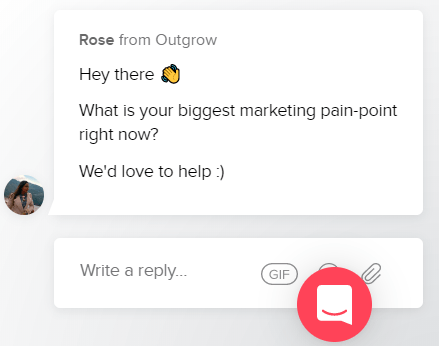Artificial intelligence (AI) is no longer a thing of the future — it is here.
What’s more, the initiatives of both the private and government sectors to grant even the small-scale business owners access to AI technology has made great strides, so much so that there are now reliable AI training programs that business owners can enroll in to learn the technology.
If you aren’t familiar with how intertwined your activities have become with AI, then here are some real-life artificial intelligence examples.
1. Navigation Applications
It wasn’t long ago when people still had to use physical maps to get around new cities or towns.
Knowing how to use a map was a basic life skill that you needed if you wanted to travel to places you weren’t familiar with.
Now, traveling to less familiar places is easier because you can just simply download an application to get to your destination.
One of these handy applications is Google Maps — an AI-powered app.

Google maps has a worldwide scope, which makes it accessible to anybody who has it, given that they have internet connection and GPS.
Another factor that makes this AI application so useful is it provides visuals on your exact location, as well as your destination.
With the help of Google maps, you have a very low probability of getting lost.
2. AI-Powered Personal Assistants
Before the internet came to be, business owners had to read books or ask their peers to learn about things that they are oblivious about.
Fast forward to several years; business owners can now do search queries using search engines like Google and Bing by typing in their keywords into the search box.
Nowadays, however, the way people do their search online has gone to another level through voice search.
By asking their AI-powered personal assistants, they can get immediate answers about several inquiries.
Let’s take Siri, Apple’s AI-powered personal assistant, as an example.

This AI application recognizes your voice, translates it into text, and carries out the command.
Being a personal assistant, it’s not just useful for inquiries. You can use Siri for sending an email to your clients or checking at your schedule for the day.
As long as you pronounce your words clearly, you’ll most likely get the answer to your inquiry (or command) in just a few seconds.
3. Customized Shopping Feeds
AI has the power to personalize the shopping feeds of web visitors — showing them products that they would most likely buy.
As the web traffic lands on a website and spends time clicking product pages and making a purchase (among other things), AI can store data and learn from it, so it can determine what the web visitor’s preferences are.
That way, the next time they visit the same ecommerce website, the store can now show products that are highly relevant to the web visitors, instead of randomly picking products from the site that doesn’t resonate with would-be customers.
Moreover, the data collected by the AI also helps online stores craft various alerts and messages that update its customers about their preferred items and events.
Let’s take Amazon, for example.

You will see a list of suggested products based on what products their web visitors are currently viewing. On their customer’s next visit, they’ll see related products.
This type of functionality makes it easier for customers to make a purchase since the products they immediately see on the website are highly relevant to them.
4. Customer Service Chatbots
It’s inevitable for your company to receive urgent questions from your customers during off-hours.
These questions often go unanswered for hours since no one from your team can answer the inquiry.
In cases like this, AI-powered chatbots can help you address your customers’ inquiries even when you, or any of your team, are offline.
For some companies, chatbots are one of the cheapest ways to answer customer queries, even during working hours.
Despite being AI-powered, some conversations have a human-feel that make them more personal.
Let’s take Outgrow’s chatbot, for example.

Despite being a chatbot, the tone of the message is casual and specific — making the experience of the person inquiring more pleasant.
Chatbots can also be used to notify your customers about upcoming company events that are relevant to them.
5. Investment and Portfolio Management
Investing money in stocks or in Foreign Exchange is a tried-and-true method to make money. Although it’s risky, it’s one of the best ways to earn if you understand how it works.
For portfolio managers, it’s crucial for them to understand the trends in the market and identify which option is the best when investing their clients’ money.
Recent innovations have created AI-powered software that analyzes and interprets market trends to help portfolio managers uncover the best places to invest.
It’s due to this that a lot of major banks all over the world use AI because of the accuracy and convenience it brings.
What used to take portfolio managers a couple of days to do research can now be done by an AI software in just a matter of minutes.
Conclusion
Convenience, accuracy, and efficiency are some of the main reasons why businesses opt to integrate AI into their business processes.
As the technology continues to grow, more and more processes can be handled by AI, allowing its user to benefit from the increase in productivity, revenue, and in the way they operate their business as a whole.




Comments are closed.